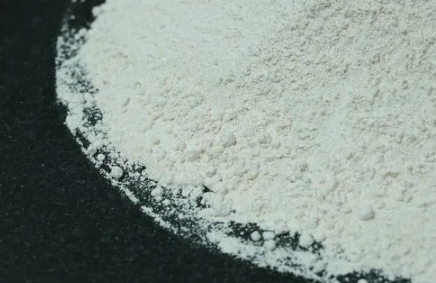What Is Calcined Magnesite?
Calcined magnesite is an excellent industrial material with many uses in different fields. It is made by carefully heating magnesite to improve its properties, which is important to industries such as steelmaking and agriculture. In this article, we’ll explore calcined magnesite, including how it’s made, its important properties, and the many impacts it has on our daily lives.
Calcined magnesite: a transformative process
Calcined magnesite is derived from the ore magnesite, a mineral composed primarily of magnesium carbonate (MgCO3). The process of converting magnesite ore into calcined magnesite requires a controlled heating process. This can lead to significant changes in its composition and properties.

The term "calcined" means that the magnesite has been subjected to a high-temperature treatment called calcining. During the calcination process, magnesite is heated to temperatures in excess of 1,000 degrees Celsius (1,832 degrees Fahrenheit). This high heat causes decomposition, resulting in significant changes in the mineral structure. The first significant transition during calcination is the decomposition of magnesium carbonate, resulting in the release of by-products carbon dioxide (CO2) and water vapor (H2O). This produces pure magnesium oxide (MgO), which is the major part of calcined magnesite. Magnesite particles shrink and become denser during calcination, resulting in densification. This results in improved physical and chemical properties of calcined magnesite. Calcination also enhances fire resistance, which is one of its most important results. Calcined magnesite is heat resistant and is an ideal material for refractory materials.
After calcination, impurities are removed, making it pure and of consistent quality, ensuring excellent performance.
Application of calcined magnesite
Calcined magnesite is versatile and has many applications in many industries.
For example, it is often used in the steel industry. Calcined magnesite is an important component of the refractory lining of steelmaking equipment such as furnaces, converters, and ladles. Its excellent resistance to heat and slag corrosion is critical in this industry.
Additionally, in agriculture, calcined magnesite is used as a soil conditioner, regulating pH and providing plants with vital magnesium and calcium, thereby increasing crop yields and quality. Finally, in water treatment applications... Calcined magnesite is used in water treatment to regulate water hardness and prevent scaling in pipes and appliances.
In construction, it is used to make fireproofing materials and as a binder in the production of magnesium chloride cement. Additionally, it is used in the pharmaceutical industry as an antacid to help relieve indigestion and heartburn.
Calcined magnesite has many uses in different industries. In addition to agricultural and industrial applications, calcined magnesite also contributes to environmental protection.
In addition to agricultural and industrial applications, calcined magnesite also contributes to environmental protection. It can replace environmentally harmful synthetic fertilizers used in agriculture. In addition, since it is fire-resistant, it improves construction safety.
Calcined magnesite is produced by heating magnesite ore and is a useful and essential material in many industries.
In conclusion
In conclusion, calcined magnesite has many advantages and is a valuable resource. Its fire-resistant properties, ability to condition soil, and uses in water treatment and construction make it an important part of modern society. Calcined magnesite plays an important role in enhancing steel production, increasing crop yields and promoting environmental sustainability. Its transformative power continues to drive innovation and advancement in countless industries, underscoring its enduring relevance in our world.

